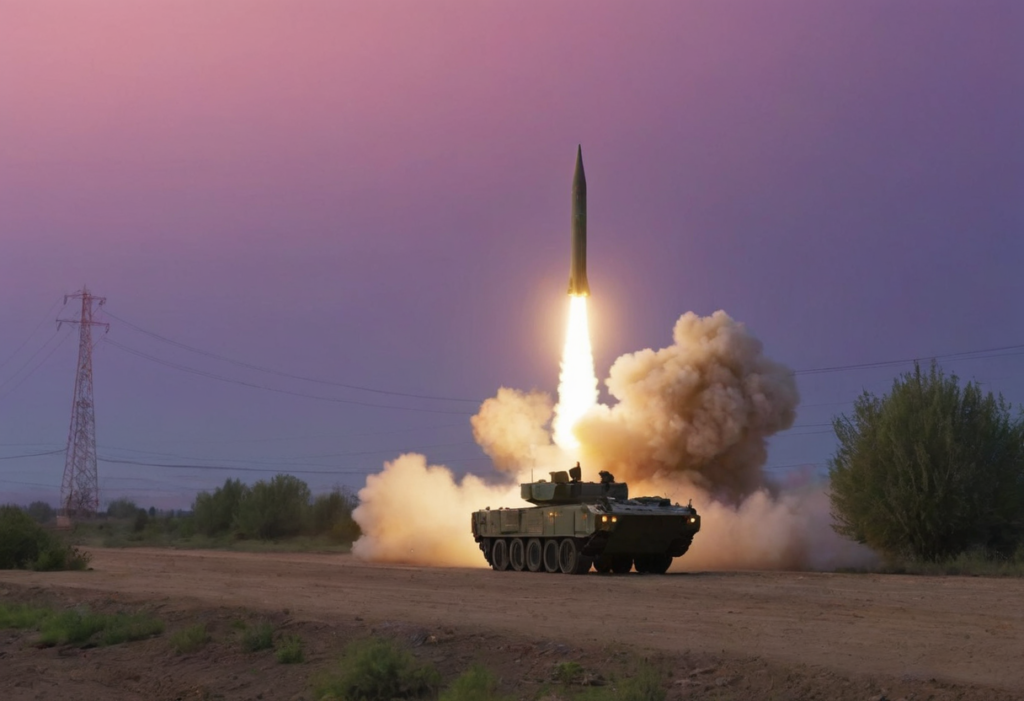
Recent reports have raised concerns about the possibility of Iran supplying ballistic missiles to Russia for its ongoing conflict in Ukraine. This development, if confirmed, could significantly impact the dynamics of the war and raise geopolitical tensions. In this article, we dive into the facts behind these claims, the implications for the Ukraine war, and the broader global context.
Allegations of Missile Supply: What’s the Story?
The reports suggesting that Iran is supplying ballistic missiles to Russia first surfaced amidst the ongoing Ukraine war, which began in February 2022. Iran has long been recognized for its missile technology, particularly its advanced ballistic missiles. Concerns over Iran’s military cooperation with Russia were initially limited to drones, but now rumors about ballistic missiles are gaining traction.
Several intelligence sources from Western nations and Ukraine have pointed to the possibility of Iran providing Russia with short- and medium-range ballistic missiles. These missiles could enhance Russia’s firepower in its battle against Ukrainian forces, especially at a time when Ukraine is receiving advanced military support from the West.
Why Russia Would Turn to Iran for Ballistic Missiles
Russia has traditionally relied on its own defense industry to supply the weaponry needed for its military operations. However, the prolonged conflict in Ukraine, coupled with international sanctions, may have strained its domestic production capacity. As a result, Russia could be seeking external sources to bolster its missile arsenal.
Iran’s missile technology is among the most advanced in the region. The country has developed a range of ballistic missiles with varying capabilities, including the Fateh-110 and Zolfaghar missiles, which have proven effective in regional conflicts. These missiles, with ranges between 200 to 700 kilometers, could give Russia a strategic edge on the battlefield.
Iran’s Stance: Denial and Diplomatic Concerns
Iranian officials have consistently denied any involvement in supplying ballistic missiles to Russia. Tehran has maintained that it adheres to international arms control agreements and has no intention of fueling the Ukraine conflict. Iran has already faced scrutiny for allegedly supplying drones to Russia, which were reportedly used in attacks on Ukrainian infrastructure.
However, the increasing ties between Russia and Iran, particularly in military cooperation, have raised eyebrows. The two nations have historically shared close relations, particularly in opposition to Western influence. If Iran were indeed supplying ballistic missiles to Russia, it could signal a deepening of this alliance, which would have far-reaching consequences for the Middle East and beyond.
Implications for the Ukraine War
If Iran is confirmed to be supplying ballistic missiles to Russia, it would have significant implications for the Ukraine war. These advanced missiles could bolster Russia’s long-range attack capabilities, allowing it to strike Ukrainian targets more effectively. This could potentially shift the balance in certain conflict zones, especially in regions where Ukraine has been able to maintain a defensive advantage.
Moreover, the introduction of ballistic missiles into the war could lead to an escalation in the conflict. Ukraine, already backed by NATO and Western allies, may push for additional military support in response to the new missile threat. This could potentially drag more international players into the conflict, further complicating diplomatic efforts for a ceasefire or peace talks.
Geopolitical Consequences: Strained Relations with the West
Iran’s alleged involvement in supplying ballistic missiles to Russia could lead to heightened tensions with Western nations, particularly the United States and European countries. These nations have already imposed sanctions on Iran for its missile programs and alleged involvement in the Ukraine war.
If concrete evidence surfaces of Iran’s missile transfers, it could result in more severe economic and diplomatic consequences for Tehran. This could include stricter sanctions, which would further isolate Iran economically and politically on the global stage. Additionally, it could strain relations with countries that have remained neutral or opposed broader sanctions on Iran.
Conclusion: The Situation Remains Unclear
As of now, the claims regarding Iran supplying ballistic missiles to Russia remain unconfirmed by independent sources. However, the growing partnership between the two countries and Iran’s missile capabilities make these allegations plausible. The global community continues to monitor the situation closely, as any confirmed missile transfers could escalate the Ukraine war and impact international relations.
The Ukraine conflict has already brought many unexpected geopolitical shifts, and the possibility of Iranian ballistic missiles entering the fray adds another layer of complexity. As the war drags on, the focus will remain on whether external players, like Iran, are playing a larger role in fueling the conflict.






